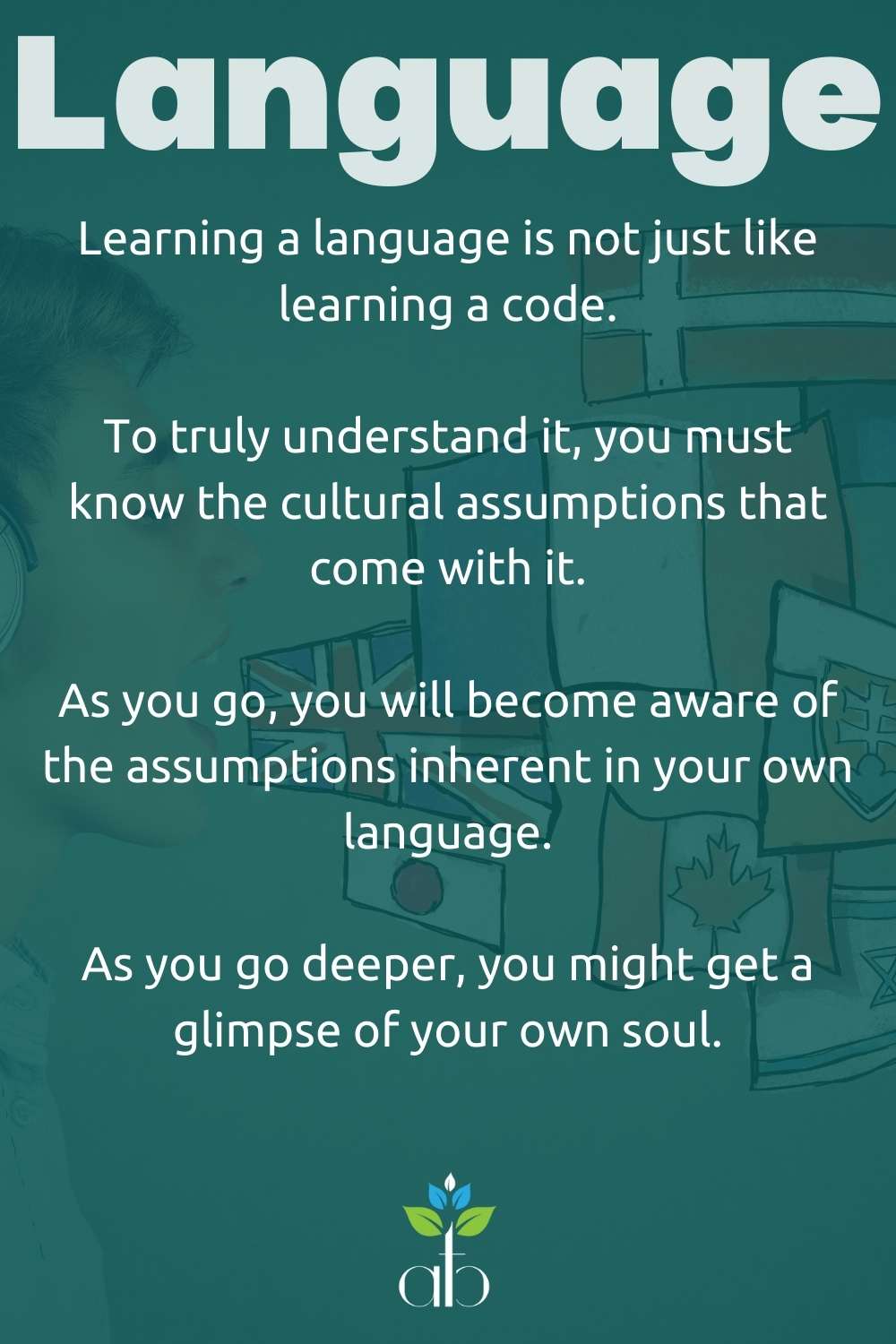Episode 401
Learn a Language

In fact, it’s not like that at all. Every language has its own assumptions, and normally close ties to the culture from which it comes.
Learning a language means we can learn to challenge our way of thinking, to think in a different way. The things we assumed which were previously obscured now start to become prominent.
As we go deeper, we start to realize that people speak a certain way because people’s souls are a certain way. To truly understand, we must immerse ourselves. These things don’t come from a classroom, from a textbook. We can’t be methodically schooled on the deepest parts of our being. But perhaps some hidden aspect of Self will be revealed when we learn a language.
Hosts & Guests
Kurt Robinson
Transcript
I think a lot of people in the English speaking world, they never quite dare enough to learn another language. It is quite difficult for almost everyone if you didn’t grow up with exposure to different languages its a little hard to put yourself on the line, to risk embarrassing yourself but this is part of the reason I have a tattoo of the fool card from the tarot because this card to me represents humility.
It represents the ability to embark on a new journey and be willing to risk looking like a fool.
Be willing to admit, hey maybe I don’t know everything. Maybe I am going to look a little silly, maybe I will look like a novice because I don’t know what I am doing.
This is a very difficult thing for a lot of people to get past. I meet people who would like to speak English and they say “Let me learn a bit more, maybe in a couple of months I can say something then when I learn more.
And I say well you are not going to learn more unless you practice. How do you think you are going to learn English unless you practice speaking with a native speaker?
In fact me being there with you presents this grand opportunity for you to attempt and be welcomed into this new way of thinking about the world. That is an important point.
If we only speak one language we might assume that other languages are just sort of like codes.
Its like you take English phrases and mix it around for grammatical differences and you more or less just swap words in and out for another language.
That’s not how it is, that’s not how other languages work. Other languages have their own logic, their own assumptions that are very closely tied to the culture.
This is the nature versus nurture debate among linguists. This eternal debate that may never be solved exactly. The debate is something like this, if you have a word or phrase in a language, does that affect the culture so people think more about that thing?
Or is the fact that they have a word or phrase to express that idea merely reflective of the culture?
I would suggest there is probably a sort of feedback loop if you have that word in the culture it means its more likely to have that idea expressed. Conversely if you have an idea in a culture then its much more likely that you will have a word or phrase to express that idea.
So I do wonder once, one of my students from Ecuador told me they don’t have a word for Deja vu. They don’t talk so much about that.
I said really? What do you say when you have that feeling?
Ah I just had that feeling like this has happened before. I was like well that’s a Circuitous way of describing it. As a result people in Ecuador probably don’t talk about Deja vu so much, right?
So the thing is, when you learn a different language you start to realize there are ideas expressed by this different culture that we don’t really have a word for.
So for example if I say in Spanish. “Que lindo ese pueblo Tepoztlán.”
How lovely is the village of Tepoztlán.
Now I can translate that, I can say how lovely in English but it will never have quite the same ring to it and people are much less likely to say that in English as they are in Spanish.
Of if I say this phrase in arabic, Bismillah ir-Rahman ir-Rahim.
Now I know what it means literally, for god the most gracious, the most merciful.
But to fully understand that would maybe take me years of speaking arabic to understand the heart of it.
When we do learn a language, we start to get access to different emotions, different ideas, different modes of being.
Someone said to me once culture is a mode of being. So if you are in Britain and someone offers you tea and you say yes of course I would love some tea.
When I go to other parts of the world I don’t drink tea as much but when in Britain, yes, I will enjoy some tea. Or if I am in Argentina, of course, I will drink Mate with you. That’s how it goes.
When I talked to Nathan Fallou about his experience in Senegal he said there is such a grand difference between somebody who goes to Senegal and starts speaking Wolof and starts to learn Wolof and starts to notice the feeling, the vibe of the language. Compared to somebody who learns it in a classroom in France and goes there and speaks it grammatically correctly but with none of the feeling.
It’d be like a classically trained musician to enter a Jazz jam. Something not quite right there. But we don’t know these things until we dive in. Participatory knowledge is sometimes much more valuable than academic knowledge.
Street smarts.
And we don’t necessarily know that. If we have been in a classroom all of our lives we might think that is how knowledge is imparted.
But there are more subtle forms of knowledge, more important ways of being. More human.
These things don’t come from the classroom or the textbook. We can’t be mechanically taught, methodically schooled.
On the deeper parts of our being. These things we must feel and these things will be revealed to us at least through this one method and probably many more.
When we learn a language.

New Episodes Every Weekday
11am Mexico City time
10 min episodes Monday - Thursday
1 h interview episode on Fridays
As an Amazon Associate I earn from qualifying purchases.
Stay Beautiful &
Stay Connected
